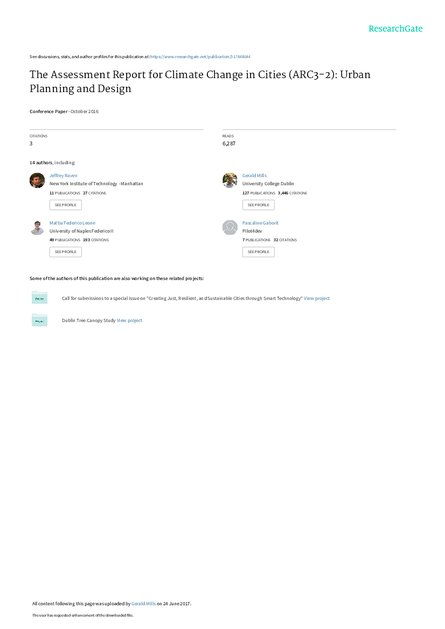
In 2007 the Urban Climate Change Research Network (UCCRN) was established during the C40-Large Cities Climate Summit. It is based at the Earth Institute in Columbia University. The UCCRN plays a key role in supporting a burgeoning ‘network of networks’ related to climate change and cities, through its own research, workshops, and networking. Key stakeholders with strong synergistic activities with ARC3 include: cities, city networks including general city groups, nation states, and international development agencies. UCCRN also supports other groups including NGOs, non-profits, private companies such as private-sector city planning and engineering firms, and other stakeholders concerned with the long-term development of cities (uccrn.org). As part of its activities it has undertaken an Assessment of Climate Change in Cities (ARC3) that mirrors the well-known IPCC assessment reports. The first ARC report (ARC3-1) was published in 2011 and focuses on how to use climate science and socioeconomic research to map a city’s vulnerability to climate hazards, and how cities can enhance their adaptive and mitigative capacity to deal with climate change over different timescales. The second ARC Summary Report (ARC3-2) was presented at the 21st UNFCCC Conference of the Parties (COP21) in Paris, and the contents of the final report will be presented at the 2016 UN Habitat III Conference in Quito. This report contains a chapter on Urban Planning and Design, which attempts to bring together literature and strategies on how urban decisionmaking can enhance or moderate urban climate effects.
